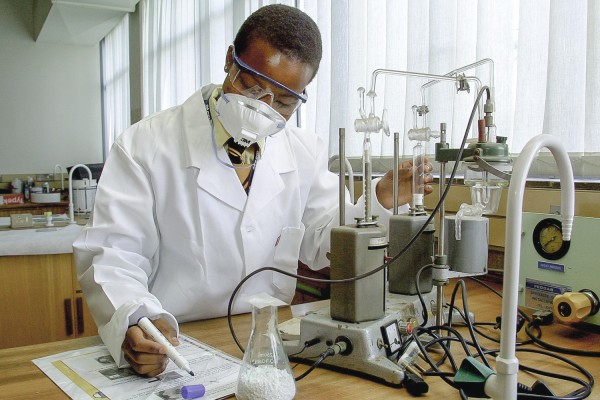Lab-Propagated Virus Imitates the Characteristics of SARS-CoV-2

To produce a SARS-CoV-2 model for safer handling, the study authors started with VSV or 'vesicular stomatitis virus'.
According to science experts, SARS-CoV-2, the virus that causes COVID-19, can only be examined safely under high-level biosafety conditions.
Scientists who handle the infectious virus need to wear full-body biohazard attires that have pressurized respirators. They should also work in a laboratory that has multiple levels of containment and specialized ventilation systems.
While it is essential to protect lab workers, such safety measures slow down initiatives to find vaccines and medicines for COVID-19 as a lot of researchers do not have access to the biosafety facilities needed.
To help solve the issue, scientists at the Washington University School of Medicine in St. Louis have reportedly propagated a hybrid virus that would allow more scientists to get into the battle against COVID-19.
The scientists genetically adjusted a non-severe virus by exchanging one of its genes for one from the SARS-CoV-2.
Consequently, the hybrid virus passes or transmits the infection to cells and is recognized by antibodies as the SARS-CoV-2. However, the said virus can only be handled under normal safety conditions of the laboratory.
ALSO READ: How Effective Are COVID-19 Antibody Tests?
It Started with VSV
To devise a SARS-CoV-2 model for safer handling, co-author of the study, Sean Whelan, PhD., and his colleagues started with a VSV or vesicular stomatitis virus.
A VSV is a workhorse of virology labs as it is neutrally harmless and easy to handle genetically.
Animal viruses, specifically that of pigs, horses, and cattle, infect people, leading to a mild illness similar to flu that can last from three to five days.
During their study, the scientists took out the surface-protein gene of the VSV and replaced it with the one from the COVID-19-causing virus, also called spike protein.
The swapping resulted in a virus, targeting cells such as SARS-CoV-2. However, other genes needed to lead to serious illnesses are missing. The scientists called the hybrid virus VSV-SARS-CoV-2.
DON'T MISS THIS: This COVID-19 Vaccine Has Been Effective on Every Volunteer, Says Moderna
Participation of COVID-19 Survivors
Through the use of serum from COVID-19 survivors, as well as purified antibodies, the scientists found that antibodies could recognize a hybrid virus very much as an actual SARS-CoV-2 coming from a patient of COVID-19.
Whelan explained that humans certainly develop antibodies against other SARS-CoV-2 proteins. However, it's the antibodies versus spike appearing to be an essential shield.
Therefore, as long as the virus contains the spike protein, it also appears to the immune system of a human, like SARS-CoV-2, for all objectives and intents.
Furthermore, the hybrid virus could help scientists assess a series of antibody-based preventives and treatments for COVID-19.
It could be used to examine as well if a trial vaccine draws out neutralizing antibodies to provide COVID-19 patients with plasma, or, determine antibodies that have the potential to be formulated into antiviral drugs.
Since the hybrid virus physically similar to SARS-CoV-2 to a human's immune system but does not result in serious illness, it is then a potential candidate for the COVID-19 vaccine. Welan and his colleagues are currency conducting studies in animals to assess this possibility.
IN CASE YOU MISSED IT: Potential COVID-19 Vaccine from University of Oxford Could Activate One's Immune Response
Jul 22, 2020 08:00 AM EDT





